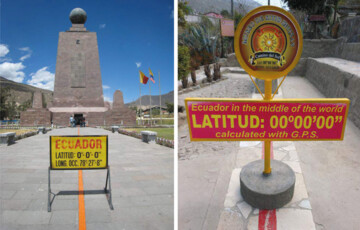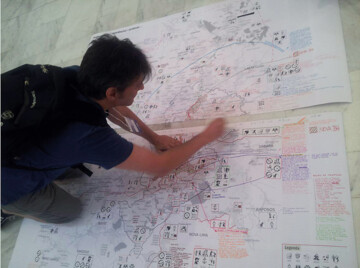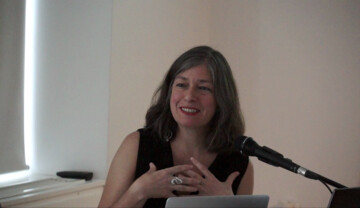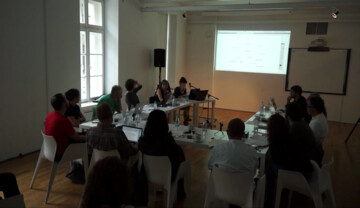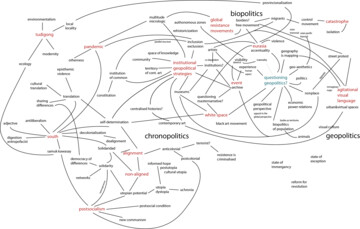Over the last two decades, the term south has been the objet of multiple-appropriations and reconceptualisations on the basis of the political dimension of the term. Historically, the south was conceived in opposition to the north through the division of their ways of production and modes of being. In this conception, the south was covered by an aura of romanticism. South was a “given condition”. geography appeared, at the same time, as the element that conditioned the division and its explanation. It was the cause and the consequence of this binary division. We can retrace the opposition in these terms to the foundations of Europe with all the literature that explains the “differences” between Germanic and Greek folk – opposition that, by the way, was recently updated in other terms. In any case, both the north and the south built up this conception producing and reproducing closed and fixed identities, univocal narratives and economies that can do anything else than gobbling up. In a way, this complex structure is not only political but biopolitical.
In its Founding Declaration, the Red Conceptualismos del Sur (Southern Conceptualisms Network) adopts “a strategic use of the term "south". It is used with the purpose of intervening in the geopolitical segmentation of a territory, Latin America, within the current hemispheric conjuncture. The geopolitical condition of the "south" is not used as a metonymy for the geography of Latin America, but as a discursive tool for dismantling the "centrality" and reversing the epistemic "marginality" upon which global "conceptualisms" have been historicized. Through the strategic and geopolitical use of the term “south," we intend to ensure that the Latin American stance is informed not by a reclamation of some regional cultural identity, but, rather, that it allows the revision of the strict dichotomies that divide center and periphery, canon and counter-canon, first and third worlds, western and non-western.”
The operation consists in “given condition” and reshaping its content. South cannot be anymore confused with a geographical position. By the way it is not —or should not be— geolocated. It becomes —with its possibilities and limits— a collective and politically active “lieu d’énonciation”.

